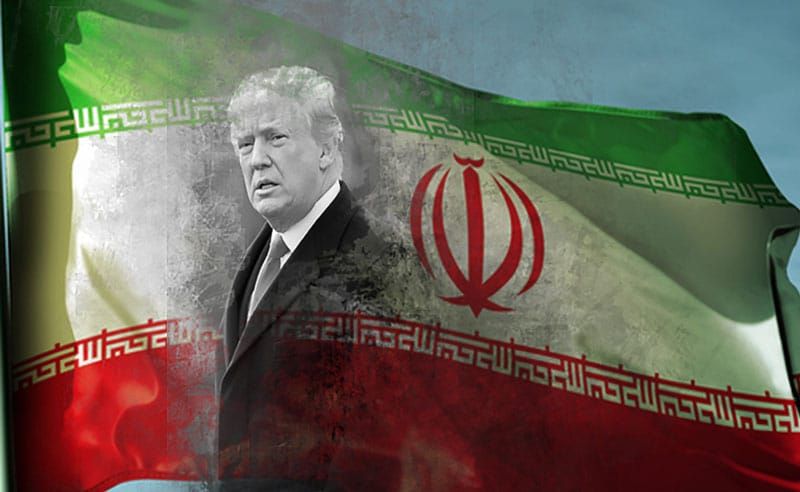Oliver Meier, the International Security Division of the German Institute for International and Security Affairs, in Berlin, deputy head, EXPERT COMMENTARY
From a European perspective, there is one positive aspect about US President Donald Trump’s announcement that the United States will stop implementing the Joint Comprehensive Plan of Action (JCPOA): Europeans now have clarity about where Washington stands on the Iran deal, transatlantic relations, and the international order.
The Trump administration has thoroughly destroyed any hope of finding a new transatlantic compromise that would ensure Washington’s durable support of the accord. In his speech, Trump ignored Europeans interests in preserving the JCPOA. The president’s announcement “to be working with [U.S] allies to find a real, comprehensive, and lasting solution to the Iranian nuclear threat” sounds cynical. Administration officials made unequivocally clear the United States intends to use its economic might to force Europeans to follow its course of isolating Iran. This administration is apparently not interested in real transatlantic give and take.
Washington’s harsh rejection of diplomacy and compromise puts Europeans in a difficult situation. For the first time, the United States is purposefully violating a binding UN Security Council decision. For Europeans, who see an international order based on the UN Charter as the best basis for addressing international crisis, this is difficult to come to terms with. Their main ally and the country that has been the key architect of the international liberal order has now openly joined other great powers in undermining that very order.
By comprehensively reinstituting extraterritorial sanctions, the United States is misusing its economic might vis-à-vis its closest partners to achieve its narrow, national goals. Because the United States has almost no business ties with Iran, it is threatening to cut European companies out of the US market unless they terminate legitimate and legal trade with Iran. Europeans have always rejected such secondary sanctions as a violation of the rules of international trade.
So what is Europe to do, if it wants to preserve the deal? In immediate reaction to Washington’s rejection of the Iran deal, Berlin, London, Paris, and Brussels routinely emphasized their “continuing commitment to the JCPOA” and appealed to “all sides to remain committed to its full implementation”.
But it is unlikely that such appeals are going to be sufficient to keep the agreement alive. It will be up to Europeans to find out whether it is feasible to create a new balance of interests among the remaining seven JCPOA parties. This is a daunting task, but one that nobody else will be able and willing to undertake.
In the short-term, Europeans will need to shift the focus of their political efforts from engagement with Washington to discussions with the other JCPOA participants.
A dialogue between the France, Germany, the UK, and the EU, on the one hand, and Iran, on the other, needs to establish what measures both sides can and should give or take so that Tehran is assured at least some of the economic benefits it was promised under the JCPOA. Thus, the EU will need to clearly state what measures it can take to fend off US attempts to undermine all legitimate European trade with Iran. This discussion may be helped by the fact that many in Tehran know that Iran has little to gain but much to lose by leaving the accord; any Iranian violation of the JCPOA’s terms would force Europeans to re-impose sanctions, too.
For such economic assurances to be politically viable in European capitals, Iran must address European security concerns. To be sure, Europeans have neglected discussions with Iran of their security agenda for much too long. Now, Tehran and Brussels must urgently sit down to discuss ways to address Iranian missile programs and its role in the many conflicts in the Middle East.
Based on the results of such a dialogue, Europeans will also need to engage China and Russia. For Europe, these are very difficult interlocutors, to say the least. Particularly, Russia’s disregard for international law and its support for the Assad regime in Syria will expose European politicians to accusations of hypocrisy, were they to sit down with Moscow on the Iran deal.
At this stage, however, a transatlantic dialogue with the Trump administration on the future of the Iran deal seems futile. Instead, Europeans should primarily engage those in Washington who oppose Trump’s reckless, nationalistic agenda. Europeans might be accused of “meddling” in US internal affairs. But the EU now needs to look beyond Trump if it wants to preserve the Iran deal, keep the hope of a US return to the JCPOA alive, and lay the foundation for improvement of transatlantic ties in the long-term.
 Trump withdraws from the Iran nuclear deal
Trump withdraws from the Iran nuclear deal














